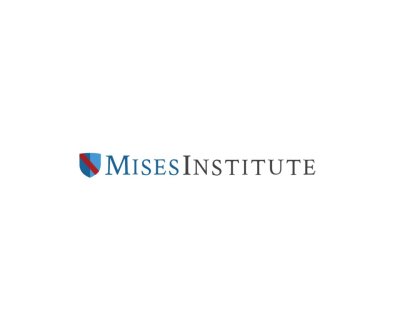President Franklin Roosevelt, the Great Depression, and the New Deal
FDR as Our Greatest Twentieth Century President
A few weeks ago I’d published an article on Father Charles Coughlin, the notorious radio priest of the 1930s, and my extensive reading revealed that he had been a far more formidable figure than I’d ever realized.
Although he was relegated to just a sentence or two in my introductory history textbooks, Coughlin had pioneered political commentary in the new medium of radio broadcasting, and partly as a result he had amassed an astonishing audience of perhaps 35 million regular listeners by the early 1930s, a total that may have amounted to one-quarter or more of all American adults. This enormous following probably made him the world’s most influential media figure, someone who dominated large segments of American society. Although the occasional fireside chats of President Franklin Roosevelt were hugely popular and FDR received thousands of letters each day, Coughlin’s own audience was much larger and his daily volume of mail far greater.
As a populist social reformer widely regarded as being on the left, Coughlin had been a strong and important early supporter of FDR and his New Deal economic policies, but he eventually came to regard these as a failure and turned against Roosevelt, also later becoming a leading figure in the effort to keep America out of World War II. That latter political turn led FDR to successfully deploy the full power of his federal government to drive Coughlin from the airwaves and permanently end his political activities.
- American Pravda: Father Charles Coughlin
Ron Unz • The Unz Review • May 19, 2025 • 8,000 Words
Coughlin was hardly alone in his strong opposition to our involvement in World War II, with polls showing that some 80% of the American people held similar views, nor was he even the most prominent public opponent.
Earlier this year, I published a long article on the career of famed aviator Charles Lindbergh and his America First campaign, a political movement that had similarly sought to block our involvement in the war. In that work, I’d drawn very heavily upon an excellent 2024 book of that title by historian H.W. Brands, whose coverage focused entirely upon that Roosevelt-Lindbergh political duel of the early 1940s.
- American Pravda: Charles A. Lindbergh and the America First Movement
Ron Unz • The Unz Review • February 10, 2025 • 15,600 Words
Although Coughlin and Lindbergh were the primary figures in those articles, in each case President Roosevelt had been their main opponent, so he also had a central role both in my political narrative and in the extensive reading that I had undertaken to produce it.
Prior to Roosevelt, no American president had ever dared to exceed the two term limit informally established by George Washington, but FDR shattered that tradition by winning a third and eventually a fourth term, becoming the longest-serving president in our national history. My school textbooks told the story of how FDR’s New Deal rescued our country from the terrible depths of the Great Depression and then how that same president went on to win the Second World War against Nazi Germany and Imperial Japan, the greatest military conflict in human history.
During his many years in office, FDR had hugely expanded the size and scope of the American federal government, establishing Social Security, Federal Deposit Insurance, the Securities and Exchange Commission, and numerous other basic elements of our society that I had always taken for granted. Along the way, he had become an enormously popular hero to a huge fraction of the American public, notably including a young Ronald Reagan, who began his political career as an ardent New Deal Democrat, and despite his later decades as a conservative Republican still always lionized FDR and many of his policies.
Given such political achievements, it’s hardly surprising that Roosevelt’s Wikipedia page runs 21,000 words, with another 32,000 words devoted to his New Deal policies, with the former declaring:
Historians and political scientists consistently rank Roosevelt, George Washington, and Abraham Lincoln as the three greatest presidents.
These articles and my reading led me to realize the very scanty and meager extent of my knowledge of FDR and his New Deal policies. For nearly my entire life, my understanding had been limited to what I had gleaned from my textbooks and absorbed over the years from my newspapers and magazines. However, about eight or nine years ago, I’d read a highly critical late 1940s book about Roosevelt and his presidency, and found it sufficiently persuasive that I’d later summarized some of its surprising information in a 2018 article. But in the back of my mind, I’d always wondered whether that account was merely a severely distorted and one-sided critique, a biased version of events that I had accepted because of my general ignorance of the subject.
Therefore, I recently decided to broaden my historical understanding of that era with an extensive study of FDR and his presidency, focusing my reading upon fully mainstream historiography, and that major project consumed much of the month of June.
The Privileged Life and Early Career of FDR
I’d been very favorably impressed with the Brands book, and noticed that the same author had previously published a lengthy 2008 biography of FDR that had been a finalist for the Pulitzer Prize, so Traitor to His Class, a doorstop-sized work running around 900 pages seemed like a good starting point for my investigation.
From the beginning, Brands emphasized Roosevelt’s very wealthy and elite family background. The future president was a descendent of the early Dutch settlers who had founded New York, and he followed that family tradition by being educated at Groton and Harvard College. FDR seems to have been a mediocre student with few if any intellectual interests, and years later he always described his failure to be admitted to Harvard’s elite Porcellian social club as the greatest disappointment of his entire life. By all accounts, Roosevelt almost never read any books, with the sole exception being dime detective stories. I’d sometimes come across these sorts of striking anecdotes about FDR in my casual readings, but having them explicitly stated in such a weighty and widely-praised biography fully confirmed their credibility.
After college, FDR enrolled at Columbia Law School, though he found legal studies rather uninteresting, received mediocre grades, and dropped out before graduating. By contrast, he was a very active and enthusiastic member of the New York City Yacht Club, so despite his lack of a law degree, a yachting friend of his soon offered him an unpaid apprenticeship at one of America’s
Article from LewRockwell

LewRockwell.com is a libertarian website that publishes articles, essays, and blog posts advocating for minimal government, free markets, and individual liberty. The site was founded by Lew Rockwell, an American libertarian political commentator, activist, and former congressional staffer. The website often features content that is critical of mainstream politics, state intervention, and foreign policy, among other topics. It is a platform frequently used to disseminate Austrian economics, a school of economic thought that is popular among some libertarians.



